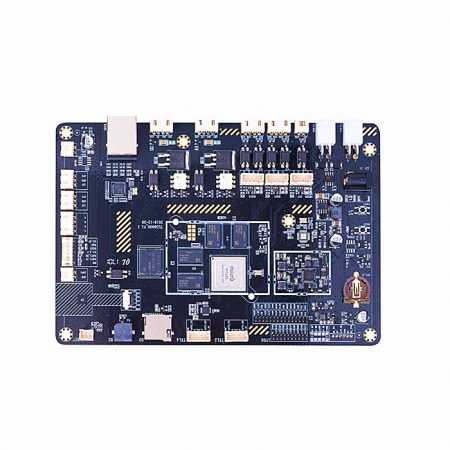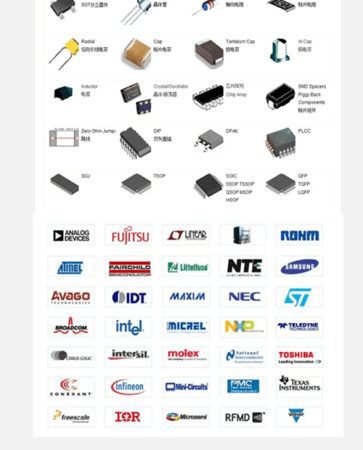- +86-755-23012705
- Building 3, Jinfeng Industrial Park, Fuyong Street, Baoan District, Shenzhen ,China
- [email protected]
When designing printed circuit boards (PCBs), choosing the right connectors is essential for ensuring a reliable and functional connection between components. For most modern PCBs, surface mount connectors (SMD) have become the standard, as they allow for compact and efficient designs. This blog will cover some commonly used surface mount connectors, their types, and how to select the right one for your design needs.
Surface mount connectors are components that are mounted directly onto the surface of a PCB rather than being inserted into drilled holes. This mounting style offers several advantages, such as reducing the need for holes in the PCB, increasing the available space for other components, and improving the overall durability of the circuit board. They are often used in consumer electronics, telecommunications, industrial equipment, and many other applications.
USB Type-C connectors have become the standard for modern devices due to their versatility and reversible design. A typical USB Type-C connector has 16 pins, allowing for fast data transfer and high-power delivery. When choosing a USB Type-C connector, it’s important to consider the pin count and the compatibility with your PCB layout.
For instance, Molex 105016-0001 and TE Connectivity 2249264-1 are two popular models for a 16-pin USB Type-C connector with a 4-layer pad design. These connectors support high-speed data transfer and power delivery, making them ideal for use in smartphones, laptops, and other consumer electronics. When selecting such connectors, ensure the 16-pin configuration is compatible with your device’s data and power requirements.
For multi-point connections, 2×5 shrouded headers are often the connector of choice. These connectors feature 10 pins arranged in a 2-row, 5-pin configuration, and their shrouded design provides extra security by preventing incorrect connections. These types of connectors are commonly used in prototyping and embedded systems where frequent connections and disconnections are required.
Models such as Molex 87831-0210 and TE Connectivity 1-87751-5 are widely used for 0.1-inch spaced, 2×5 SMD headers. They are versatile, commonly used in applications such as computer peripherals, industrial systems, and various other electronics. When selecting these connectors, consider the pin pitch (0.1 inches or 2.54mm), the type of PCB you are using (whether it is a single-layer or multi-layer design), and the mechanical strength required for the application.

Shrouded connectors are widely used in various applications due to their additional protective features. The term “shrouded” refers to a surrounding cover that helps prevent pins from bending or short-circuiting. A popular model like Amphenol 101-01761-01 offers a 2×5 pin configuration and is designed with 0.1-inch spacing (2.54mm) for easy integration into any device requiring such a connection.
When choosing a shrouded connector, always ensure it is compatible with the pin layout and is suitable for your application’s data and power specifications. These connectors are often used in computing devices, communication equipment, and power modules.
A potentiometer, often called a trimpot, is an adjustable resistor that is frequently used for fine-tuning and calibration purposes. One such component, TRIMPOT-SMD-3MM-OPEN-1/10W-25%, is designed for surface-mount applications and features a power rating of 1/10W. It is often used in precise adjustment settings where you need to set a resistance to a specific value, such as in power supply adjustments or analog circuit fine-tuning.
Another widely used potentiometer is the Vishay TC33X, which features a SMD package and is commonly used in industrial and consumer electronics where precise resistance control is critical.’

Selecting the appropriate connector is crucial for ensuring the performance and reliability of your PCB. Here are some tips for choosing the right connector:
Pin Count and Configuration: Ensure that the connector’s pin count and arrangement align with your PCB design. Connectors with 16 pins, 2×5 configurations, or 4-layer pads are common choices for high-density connections.
Connector Type: Determine if you need a shrouded connector for added protection or a standard open header type. Shrouded connectors are ideal for preventing short circuits and incorrect connections.
Power and Data Specifications: Consider the power and data needs of your device. For example, USB Type-C connectors should support the required power delivery and data transmission rates for your application.
Size and Mounting Style: Choose a connector that matches the available space on your PCB and supports surface-mount installation if needed.
Brand and Reliability: Opt for connectors from reputable manufacturers like Molex, TE Connectivity, Amphenol, and Vishay, as they offer durable and reliable components suitable for a wide range of applications.
Surface mount connectors are essential components for building reliable and efficient PCB designs. Whether you are working with USB Type-C, 2×5 shrouded headers, or trimpots, choosing the right connector ensures your device operates smoothly. By understanding the different connector types and their applications, you can make informed decisions that align with your project’s requirements. Always ensure compatibility with your design, and choose a connector that meets your electrical, mechanical, and space constraints for optimal performance.
Discover a World of Possibilities with XPCB LimitedAt XPCB Limited, we’re here to help you explore new horizons. Our advanced PCB manufacturing, rapid prototyping, and turnkey PCBA solutions make it easy for you to turn your ideas into reality. Trust us to deliver excellence and reliability every step of the way. Join us and experience the power of innovation with XPCB Limited by your side.






XPCB Limited is a premium PCB & PCBA manufacturer based in China.
We specialize in multilayer flexible circuits, rigid-flex PCB, HDI PCB, and Rogers PCB.
Quick-turn PCB prototyping is our specialty. Demanding project is our advantage.
Tel : +86-136-3163-3671
Fax : +86-755-2301 2705
Email : [email protected]
© 2024 - XPCB Limited All Right Reserve
